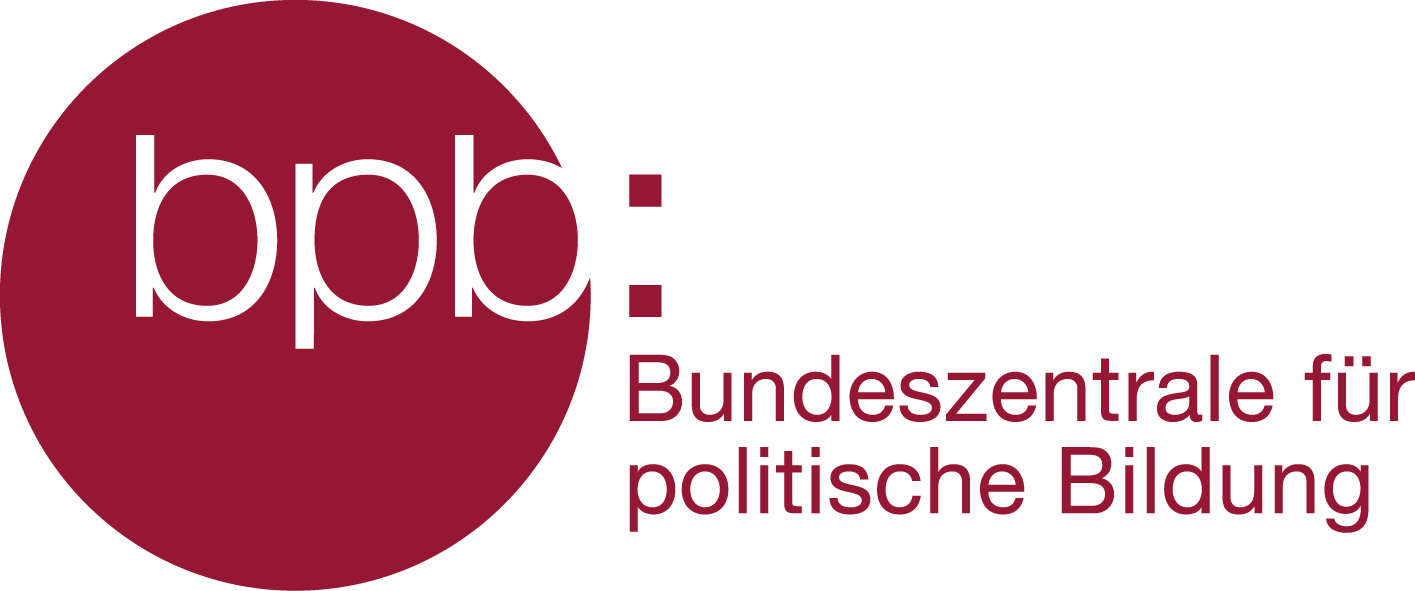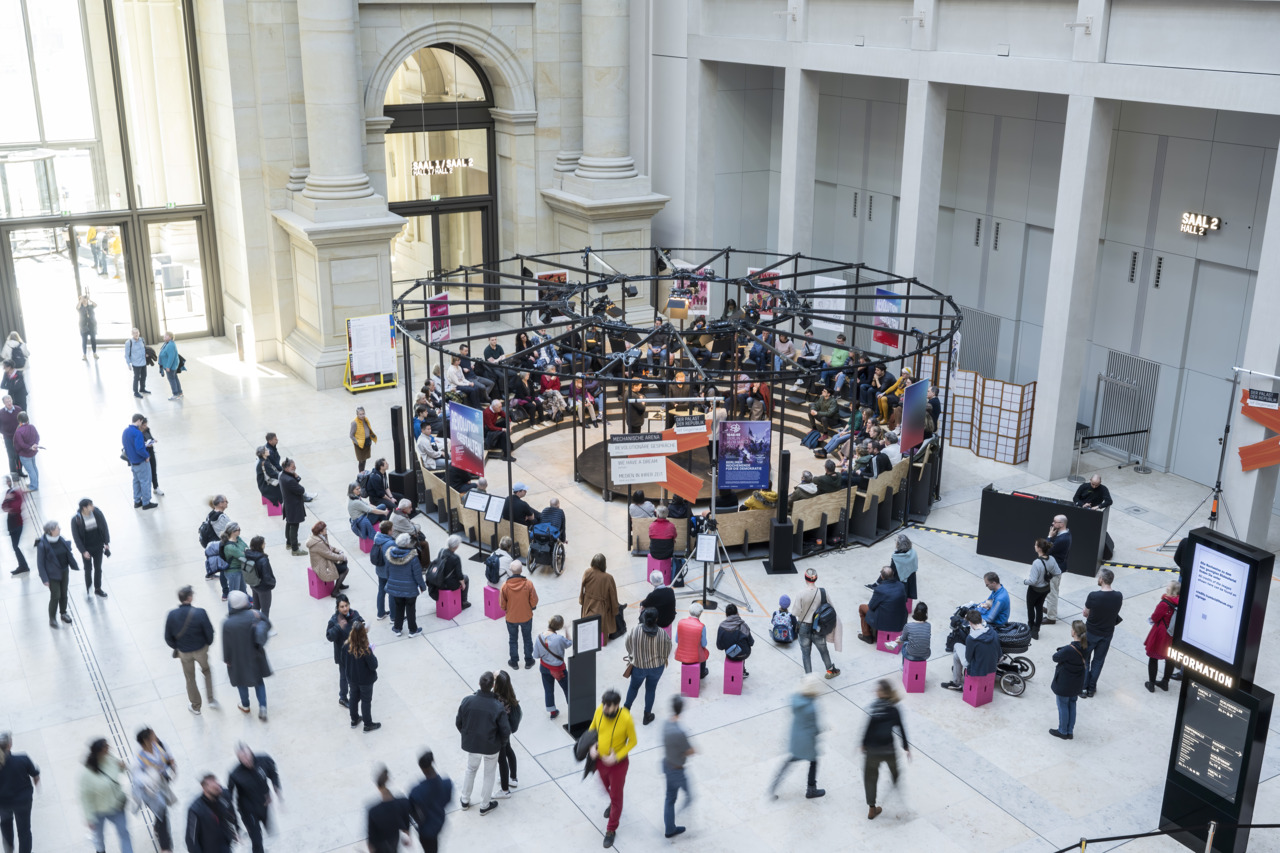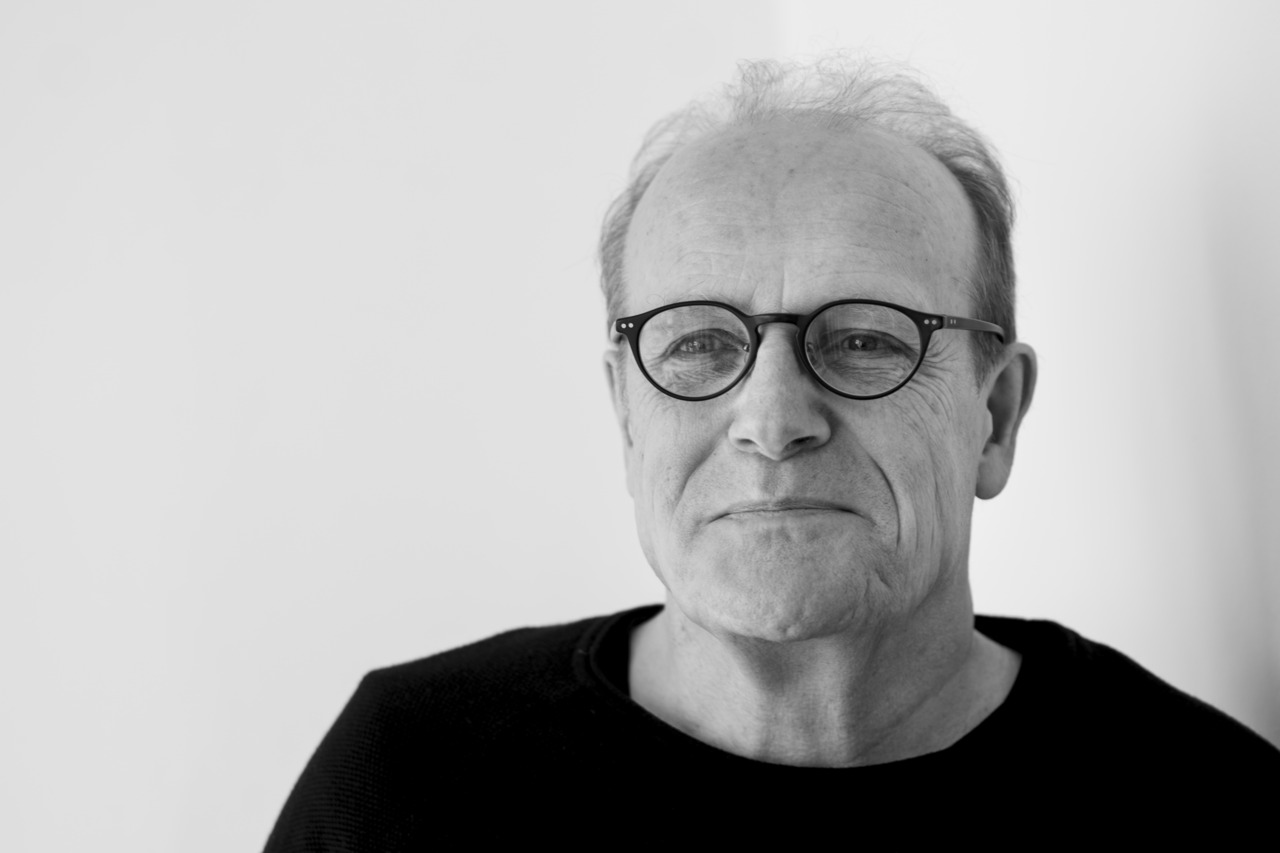Panel 1: Palaces of Culture. Aesthetics, ideology, practice
{{ time.start_TS | TS2dateFormat('MMM') }}
{{ time.start_TS | TS2dateFormat('YYYY') }}
| free of charge |
| German |
| Duration: 60 min |
| 14 years and older |
| Mechanical Arena in the Foyer |
| Belongs to: Post/Socialist Palaces |
Palaces of Culture featured prominently in the educational and cultural policies of socialist states. As places of encounter and education, of culture and sport, they were part of the social engineering practised by the state. At the same time, they were architectural icons of many Eastern, Central and Southern European capitals. But Palaces of Culture were found not only in the heart of socialist metropolises. “Houses of Culture” were systematically established in smaller towns and suburbs too, where people could take advantage of education, culture and sports offerings that also served to shape the “socialist citizen”. Then, in the years of change around 1989, Houses and Palaces of Culture played an important role as physical venues in the system transformation. Today, the architectural and cultural heritage of these Palaces is handled in ways that are as diverse as the societies of Central, Eastern and Southern Europe. In five panel discussions curated by the Federal Agency for Civic Education (bpb), visitors to the Humboldt Forum will take a look at Warsaw, Kyiv, Belgrade and Minsk together with guests from the respective countries. They will learn more about the socialist idea of Palaces of Culture, urban debates, revolutions in the city environment, international discourses, political protests, state power, and shrinking spaces for culture.
The discussion will explore the significance of Palaces of Culture and Houses of Culture in socialist lifeworlds, with a dialogue of perspectives from architectural theory and cultural studies. Palaces of Culture and Houses of Culture – in general but also with reference to specific examples – are considered as structures and urban objects that represented and shaped socialist lifeworlds. Central to this are the aesthetics of the buildings and their ideological foundations, but also pragmatic aspects of the history of their construction. In addition, the discussion will reflect on the ideological background of Palace architecture, and explore the understanding of culture that it expresses. Finally, we will trace the emergence of a “mythology of Palaces of Culture” which endures to this day.
Speakers
Dr. Thomas Flierl, architectural historian and publicist, Berlin
Prof. Dr. Georg Witte, literary scholar and slavist, Berlin
Moderator
Dr. Heike Winkel, Advisor on Russian disinformation, Central, Eastern and Southeastern Europe project group at the bpb
Dr. Thomas Flierl, studied philosophy and aesthetics at the Humboldt University of Berlin, gaining his doctorate there in 1985. After working in the cultural sector and in politics, he has been a freelance architectural historian and publicist since 2006. 2007-2022: chairman of the Hermann Henselmann Foundation, member of the Bauhaus Institute of History and Theory of Architecture and Planning in Weimar since 2011, member of the Academy of Arts, Berlin, since 2021.
Prof. Dr. Georg Witte was Professor of Slavic Literatures at the Humboldt University from 1993 to 2004, then Professor of Comparative Literature and Slavic Literatures at the Peter Szondi Institute and at the Institute for East European Studies at Freie Universität Berlin until 2019. His research focuses on Russian culture in the 20th century, literature as media practice, Eastern European avant-gardes, and samizdat poetry. In September 2019, he became head of the philology department at the Higher School of Economics (HSE) national research university in Saint Petersburg. He resigned following the Russian invasion of Ukraine and has since returned to live in Berlin. He translates and edits Russian conceptual art and literature (Ilya Kabakov, Lev Rubinstein, Dmitri Prigov, Vsevolod Nekrasov, the “Collective Actions” group and others) as well as contemporary Russian lyric poetry (Kirill Medvedev, Pavel Arsenev, Roman Osminkin and others), and publishes his own poetic texts.
Dr. Heike Winkel is a member of the Central, Eastern and Southeastern Europe project group at the Federal Agency for Civic Education, bpb. She holds a PhD from the Faculty of Philology at Freie Universität Berlin, where she worked as a researcher and teacher. Her main research topics were Soviet, post-Soviet and contemporary cultures, literatures and histories with a focus on writing and identity during Stalinism and the Second World War. She subsequently managed an international research and documentation project dealing with the fates of Soviet prisoners of war for the German War Graves Commission. At the bpb, she is in charge of activities to raise awareness about Russian disinformation.
The series “Palaces for the People. Palaces of Culture in Eastern Europe Before and After 1989” is curated by the Bundeszentrale für politische Bildung


